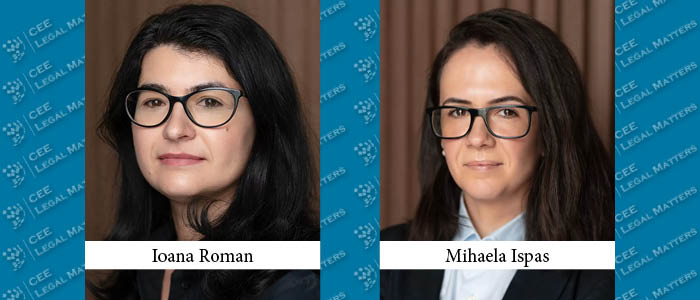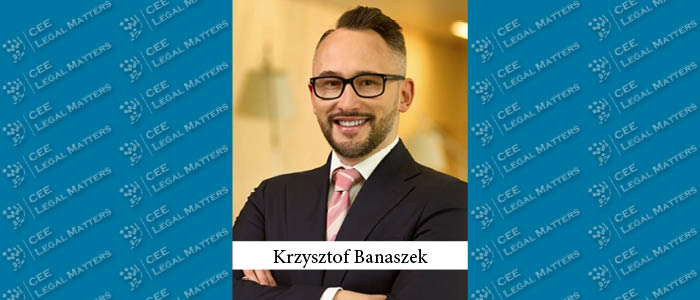The Law no. 55/2015 “For strategic investments in the Republic of Albania”, determines the procedures and rules applied by state bodies for the examination, approval, and support by the Albanian government of strategic investments in Albania, both domestic and foreign. The deadline for obtaining ‘Strategic Investment’ status, after being postponed several times, expired on 31 December 2023, however now a new amendment pending approval by the parliament, aims – among other things – to extend the benefits of the law until 31 December 2027.
Retrospective of Last Year and Predictions for 2024 in Real Estate
For us, 2023 was a stable year, with constant and varied activity in the real estate field, despite the less favorable context, characterized by high inflation, geopolitical instability and the impact on the economy. Our team has successfully completed several transactions, “pure” real-estate and especially transactions with a predominant M&A component. We were happy to notice a series of projects with 100% Romanian capital, initiated in 2023 and completed in the same year, targeting especially companies that have expanded and diversified their portfolio.
Chapter 3 – Commercial Offenses Trilogy Finale
Quite unexpectedly, 2023 has proven to be a pivotal year for our trilogy on commercial offenses, considering the anticipated surge in the number of commercial cases before the national Commercial Courts attributed to the announced expeditiousness of public prosecutors. In light of such circumstances, we once again urge our readers, if they have not already done so, to check out our Chapter 1 - "A Commercial Offense – A Brief Review of an Unjustifiably Neglected Step Between a Misdemeanor and a Criminal Offense."
Implications of the Revised Market Definition Notice for Western Balkan Countries
On February 8, 2024, the European Commission (“EC”) unveiled an updated Market Definition Notice (“the Notice”). The revision plays a crucial role in the EC’s approach to assessing mergers and antitrust cases by delineating the competitive boundaries and assessing the market power of companies.
Reporting on FX Operations in Serbia: Common Mistakes Leading to Misdemeanour Liability
Under the Serbian Law on Foreign Exchange Operations and its accompanying bylaws, Serbian residents have various reporting obligations towards the National Bank of Serbia (“NBS”), which is competent for controlling foreign exchange (“FX”) operations of residents and non-residents. It is not rare in practice that companies operating in Serbia are not aware of (all) such obligations, especially in the cases of first-time entrance to the market, which exposes them to potential liability for FX misdemeanours. The controls in this area are common while identified irregularities are followed by misdemeanour proceedings.
Acquisition of Real Property on the Polish Retail Market
In the recent years, the Polish retail properties market went through a difficult period. The coronavirus pandemic and the related social restrictions had a major impact on the financial results of shopping malls. In addition to that, the changing consumer behaviors contributed to a massive increase in online sales. However, the years 2022 and 2023 brought a gradual improvement of the situation on the retail market and, consequently, of the overall climate for investing in real property. Furthermore, alternatives to large shopping malls, i.e. smaller retail parks, have been enjoying growing popularity on the market for several years now; these are often located closer to residential areas and in smaller cities. This sector has been growing dynamically in terms of both volume and the share in the entire retail market in Poland.
Working with the Unified Portal for e-Justice: Improvements and Practical Issues
Three years after its launch, e-Justice in Bulgaria is still under construction and improvement and has not yet reached its final form.
Albania Implementing New Income Tax Law
Albania has officially implemented law no. 29/2023, dated 30.03.2023 “On Income Tax”, effective starting from 1 January 2024; repealing and replacing law no. 8438, dated 28.12.1998 “On Income Tax”, as amended. Despite successive amendments over the years, law no. 8438 is deemed outdated and inadequate in addressing the contemporary principles and methodologies associated with personal income tax and corporate income tax (the “New Income Tax Law”).
Entering Into Force of the General Act and the Date of its Implementation – is There a Difference?
Amendments to laws and other regulations must stipulate transitional and final provisions. They regulate, among other things, the date of entry into force of the act, which is, as a rule, eight days starting from the day of its publication in the "Official Gazette of the Republic of Serbia", while in certain cases later implementation of the act or its certain provisions is foreseen.
Mergers & Acquisitions and Intellectual Property
In the context of mergers & acquisitions (M&A), Intellectual Property (IP) plays an extremely important role in assessing the value and risks associated with the target company.
Enforcement Activities of the Largest Competition Regulators in AI
Effective enforcement of competition rules in the AI world is on the horizon. Competition regulators around the world are closely monitoring the advancement of AI and the competitive landscape across various facets of AI.
Ukraine: The Classifier of Professions has Been Significantly Updated
In Ukraine, employee job titles should be named exclusively in accordance with the national classifier DK 003:2010 "Classifier of Professions".
Life Sciences Bulletin: Recent notable changes to life sciences regulation in Hungary
A reorganisation of the authorities regulating the pharma sector and new legislative pieces have brought notable changes to the life sciences sector in Hungary.
Competition Perspective of M&A Deals after the Towercast Case
One of the most important questions within every M&A deal is whether the transaction at hand is subject to merger clearance. The answer to said question might impact the timeline and (potentially) the successful completion of the deal itself. Up until Towercast cases (C-449/21), the analysis was straightforward by applying the clear turnover-based rules defining the applicability of the Regulation No 139/2004 (“Merger Regulation”).
Poland’s Family Foundation Act: Celebrating its First Anniversary
For many years it has been clear for Polish entrepreneurs that there is no simple legal answer to their strong need to secure their family assets, and above all their family businesses, for future succession. Due to the lack of appropriate instruments in the Polish legal system, many national entrepreneurs were forced to use the legal institutions of other jurisdictions. This solution was highly uncomfortable because of the differences in legal regimes and foreign legal requirements that did not entirely meet the needs of domestic entrepreneurs.
Vires in Numeris – Romania transposes EU regulated class action institution
In 1998, in the aftermath of the most famous class action in history, Philip Morris and three other tobacco companies had to pay a $ 206,000,000,000 settlement covering medical costs for smoking-related illnesses.
Changes of the Value Added Tax Act (ZDDV-1) in Slovenia from January 1, 2024
In a recent update to the VAT Act in Slovenia, notable amendments have been introduced, particularly focusing on services in the public interest. Article 42(1)(5) of the VAT Act has changed, emphasizing VAT exemptions exclusively for services provided within activities deemed in the public interest.
Intended Changes to the Grid Connection Rules in Romania – The Auction-Based Mechanism and New Rules on Financial Guarantees
On 1 February 2024, the National Energy Regulatory Authority (ANRE) in Romania published for consultation an order aimed at approving new rules in the power grid connection sector.































